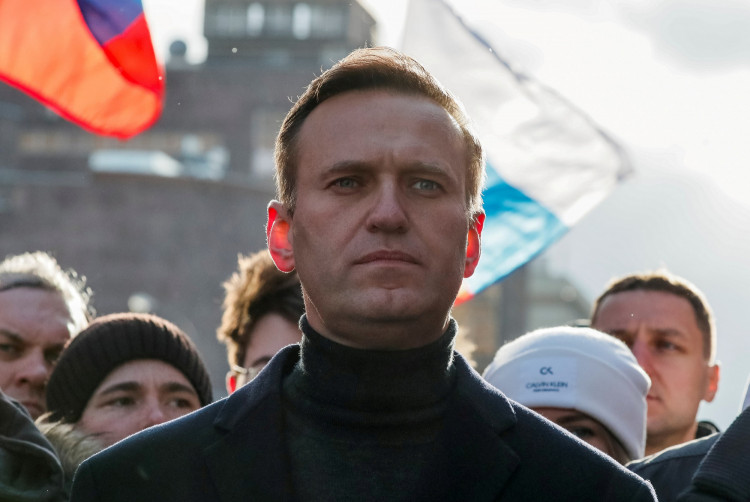The funeral for Alexei Navalny, the Russian opposition leader whose untimely death has ignited international controversy, is set to take place this Friday at the Church of the Icon of the Mother of God "Quench My Sorrows" in the Maryino District of Moscow.
Scheduled for 2 p.m. MSK, the service will be open to the public, with Navalny to be laid to rest at a nearby cemetery. The arrangements come after a fraught period during which Navalny's family and allies encountered significant resistance from various quarters in organizing a fitting farewell, highlighting the Kremlin's apparent efforts to minimize the event's impact.
Navalny, who passed away earlier this month in a high-security Arctic penal colony, has been a thorn in the side of Russian President Vladimir Putin for years, leading anti-corruption campaigns and mass protests against the Kremlin. His death, attributed by many, including President Biden and other global leaders, to the Russian government, marks a chilling milestone in Putin's crackdown on dissent. Despite the Kremlin's silence on the cause of death, the circumstances surrounding Navalny's demise and his treatment in custody have raised serious human rights concerns.
Efforts to organize Navalny's funeral were met with obstructions, as recounted by his spokesperson, Kira Yarmysh, and Ivan Zhdanov, director of Navalny's Anti-Corruption Foundation. According to Yarmysh, many venues outright refused to host the funeral upon hearing Navalny's name, with some citing direct bans on working with his associates. Zhdanov revealed that the original plan was to hold the funeral on February 29, but alleged government interference forced a change in date, with even grave-diggers reportedly unavailable on the initially chosen day.
The Russian government's attempts to quash public mourning were evident in the detention of over 400 individuals across Russia, who gathered to honor Navalny's memory, as reported by the OVD-Info rights group. This crackdown underscores the extent to which the authorities are willing to go to suppress solidarity and silence dissent.
Yulia Navalnaya, the widow of the late opposition figure, voiced her concerns about potential arrests at the funeral in her address to the European Parliament. She lamented the difficulties in organizing her husband's final send-off and expressed uncertainty about whether the ceremony would proceed without incident. Despite these challenges, Yulia Navalnaya has pledged to continue her husband's work, fighting against corruption and authoritarianism in Russia.
Navalny's struggle against the Kremlin, marked by his survival of suspected assassination attempts and his enduring criticism of Putin's regime, has left an indelible mark on Russian politics and civil society. His extended prison sentence, widely regarded as politically motivated, and the harrowing conditions of his detention have only amplified calls for accountability and justice. As the world watches Navalny's final journey, the spotlight on Russia's human rights record and the international community's response to Putin's authoritarian tactics grows ever more intense.






